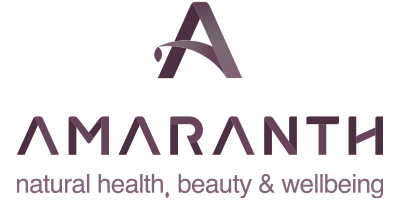Why Is Creatine Especially Important for Women?

Creatine for women is gaining attention for good reason. Research shows many women may be low in creatine, especially those eating plant-based diets or going through hormonal changes like perimenopause. In this post, we’ll explore how creatine can support muscle tone, brain health, and energy at every stage of life.
Many Women Are Deficient in Creatine
It’s estimated that up to 60% of people may not have optimal creatine levels (Persky & Brazeau, 2001). Women, in particular, tend to have lower creatine stores than men — primarily due to differences in muscle mass and dietary intake, especially in those following vegetarian or plant-based diets.
This gap can become more of an issue in perimenopause and postmenopause, when both muscle mass and cognitive function begin to naturally decline.
Benefits of Creatine for Women
1. Supports Lean Muscle Mass & Strength
Creatine supplementation has been shown to increase training performance, enabling you to lift heavier, perform more reps, and recover faster. This leads to muscle hypertrophy (growth) and improved body composition, particularly when combined with regular resistance training (Branch, 2003).
Creatine also draws water into muscle cells, making them look fuller and but more importantly, this hydration effect acts as a signal to stimulate muscle protein synthesis and reduce breakdown.
2. Improves Brain Function and Mental Energy
The brain uses a huge amount of ATP (our energy currency) to function especially during tasks that require memory, focus, or problem-solving. Just like in muscle, creatine helps regenerate ATP in brain cells, stabilising energy supply during periods of stress, mental fatigue, or poor sleep.
Studies have shown that creatine may improve short-term memory, processing speed, and attention, especially in women who are sleep-deprived or under high cognitive load (Avgerinos et al., 2018; Rae et al., 2003).
There’s even promising early research into its neuroprotective effects, potentially supporting cognitive resilience in ageing and neurodegenerative diseases.
3. Supports Healthy Ageing, Muscle and Bone
As women age, they’re more vulnerable to sarcopenia (muscle loss) and osteopenia/osteoporosis (bone loss). Regular strength training helps preserve both muscle and bone — but creatine enhances these adaptations by increasing muscle mass and the force placed on bones during resistance work (Candow et al., 2022).
Stronger muscles place more stress on bones, which in turn helps maintain or improve bone density.
4. May Support Mood and Hormonal Transition
Creatine has been studied for its role in mood regulation and has shown some potential in supporting mild depression and mood fluctuations, particularly in women with lower creatine levels. As oestrogen fluctuates during perimenopause, many women report fatigue, low mood, and brain fog — symptoms creatine may help ease through its impact on brain energy metabolism (Rocha et al., 2020).
How to Take Creatine
- Daily Dose: 3–5g per day is the standard.
- Loading? Not necessary unless you want faster results. Daily use reaches full muscle saturation within 3–4 weeks.
- When to Take It: Any time of day works — but taking it post-workout or with a carb/protein-rich meal may enhance absorption.
- Consistency is Key: Take it daily, even on rest days. Especially important for vegetarians or vegans who don’t get creatine through diet.
Are There Any Side Effects?
Creatine is one of the most well-researched and safest supplements available. Studies have shown no negative effects on kidney or liver function in healthy individuals (Poortmans & Francaux, 1999).
- Water retention: Some people notice initial weight gain from water being drawn into the muscles. This is intracellular and not bloating in the traditional sense.
- Stomach upset: Rare, but can be reduced by choosing micronised forms like Creapure
Best Creatine for Women
Look for creatine monohydrate, the most studied and proven form. High-quality options include:
- Ancient + Brave Creatine Monohydrate
- Vivo Life Creatine Monohydrate+ (with added vitamin D and magnesium)
Who Should Consider Supplementing?
- Women wanting to build muscle tone and strength
- Anyone experiencing brain fog, stress, or sleep-deprived days
- Vegans and vegetarians with low dietary intake
- Perimenopausal and postmenopausal women aiming to maintain lean mass and cognitive sharpness
Final Thoughts
Creatine is no longer just a supplement for male athletes — it’s a safe, evidence-based nutritional supplement that supports female health across the lifespan.
References
- Avgerinos, K. I., Spyrou, N., Bougioukas, K. I., & Kapogiannis, D. (2018). Effects of creatine supplementation on cognitive function of healthy individuals: A systematic review of randomized controlled trials. Experimental Gerontology, 108, 166-173.
- Branch, J. D. (2003). Effect of creatine supplementation on body composition and performance: a meta-analysis. International Journal of Sport Nutrition and Exercise Metabolism, 13(2), 198–226.
- Candow, D. G., et al. (2022). The effect of creatine supplementation during resistance training on bone health in aging adults: a narrative review. Nutrients, 14(4), 806.
- Kreider, R. B., Kalman, D. S., Antonio, J., et al. (2017). International Society of Sports Nutrition position stand: safety and efficacy of creatine supplementation in exercise, sport, and medicine. Journal of the International Society of Sports Nutrition, 14, 18.
- Persky, A. M., & Brazeau, G. A. (2001). Clinical pharmacology of the dietary supplement creatine monohydrate. Pharmacological Reviews, 53(2), 161–176.
- Poortmans, J. R., & Francaux, M. (1999). Long-term oral creatine supplementation does not impair renal function in healthy athletes. Medicine and Science in Sports and Exercise, 31(8), 1108–1110.
- Rae, C., Digney, A. L., McEwan, S. R., & Bates, T. C. (2003). Oral creatine monohydrate supplementation improves brain performance: a double–blind, placebo–controlled, cross–over trial. Proceedings of the Royal Society B: Biological Sciences, 270(1529), 2147–2150.
- Rocha, E. M., et al. (2020). Creatine and mood disorders: A review of the effects and mechanisms of action. Nutrients, 12(12), 3701.
